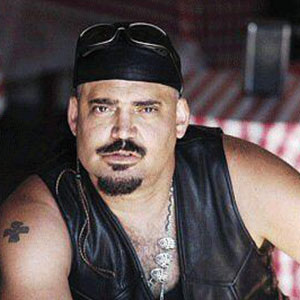Intro | Nic Cage | William H. Macy | Flin Flon | Christopher Coppola

Scion of a phenomenal family and a regular guest at Cinequest, Christopher Coppola is chairman of the film program at SF Art Institute. A pupil of George Kuchar’s, Coppola now supervises the classes that the pioneer underground filmmaker once taught at SFAI. He’s adding VR to the curriculum at the school. He’ll be presenting “Universe at Play” a fantasy short about the collision between the world of a beatnik composer and a forest troll.
Coppola’s appearance at the fest will be part of the way Cinequest is doubling down on its VR component Cinequest s. Viveport is presenting a VR Experience Lounge, and Samsung hosts a six-program selection of Virtual Reality Cinema shorts. Mar 1-4 the fest offers a series of VR Workshops, where tips on scriptwriting, post-production, and monetizing are offered up, “How to make money off of all this is important to students,” Coppola observed.
The actor, director and teacher creates low-budget films he terms “digiflix.” “I stay engaged, but I’m very old-fashioned. Hire editors, light the set, remember story and your actors. Everybody is a star, everybody is a director.” Coppola has even taught cinema syntax to the blind”you don’t need to have vision to have vision!”
With fast, cheap movie-making, failures never end careers. Coppola claims Deadfall (1993), in which he directed his brother Nicolas Cage, is one of the worst movies ever made: “We played brothers, and he killed me.” Deadfall is today the object of a lively cult, and Cage starred in a prequel released last year.
In 1999 Coppola directed a Super 16mm film titled Palmer’s Pick-Up. He needed a top-drawer negative cutter and got a recommendation from Spielberg himself. “What I didn’t know is that this cutter fled his wife to go live under a pyramid in Sedona, Arizona, and he left the kids in charge. They put glue all over the negative. I heard that there was a new machine called Spirit that would scan the film and remove the glue marks. It saved the film. Now that I had a digital copy, I submitted this weird pirate Coppola movie to [Cinequest co-founder] Halfdan Hussey. After that, I was a judge at Cinequest and spoke at some of the digital cinema workshops.”
At Cinequest in 2000, Coppola was declaring “digital cinema isn’t the future, it’s now”he says that some of this faith in technology came from being the nephew of Francis Ford Coppola. In 1981, the elder Coppola directed One from the Heart from the inside of an Airstream trailer with audio-visual hookups and playback system. The director of the Godfather series also embraced digital cinema as early as the middle of the last decade. Similarly, Christopher Coppola was on hand at an early display of the possibilities of digital video, shortly after the year 2000. “When Allen Daviau (the cinematographer of ET) showed us a test, most of the audience couldn’t tell the difference between it and film, “I said, ‘Mark my words, film is dead.’ And I wouldn’t have said it if I didn’t believe it.”
Christopher Coppola has a similar faith in the destiny of VR. Like primitive digital cinema, VR has growing pains. The technology doesn’t quite work yet for live action.
“Actors that are 10 feet away from the VR camera look like they’re 1,000 feet away,” he says. And as in 3D filmmaking, the editing can’t be too rapid. “Something has to stay where it is for about 10 seconds before you steer the eyeballs.”
Still, the building blocks of VR are the same tools used elsewhere on stage and screenwhether it’s scripts to contain the windows of possibilities, or the importance of an actor hitting his marks.
Coppola is an engaging and persuasive speaker, and when he discusses the possibilities of VRtouring forbidden tombs, exploring jumbo-jet enginesit’s tough not to get enthusiastic. However, VR today seems to drift toward violence, such as the VR setups that put you in the place of a serial killer. Hence Coppola’s question: “Can we develop games to make better people instead of better killers?” He mentions one example of how it could be done. Since his uncle was uninterested in Redwood Shores’ EA 2006 Godfather game, Christopher decided to look it over for him. “One fascinating thing is that you got extra points if you negotiate instead of pulling the trigger.”
Coppola’s famous brother, Nicolas Cage, will accept the Maverick Spirit Award this year, and also star in a VR short “The Humanity Bureau.” And yet Coppola says, “It’s hard for him to get his head around VR as an actor. I was doing some Oculus Rift stuff and my brother came by. He thought it didn’t work. He respects it, but he’s not feeling it yet. But his uncle is Francis, also, so I think he will get it eventually.”
As for his brother’s acting: “What happened to the men actors? They’re all boysJohnny Depp and the rest. There are few real man actors. And Nicolas is definitely one of the few.”
VR Event: Universe at Play
Mar 1-3
California Theatre Rehearsal Hall, San Jose


